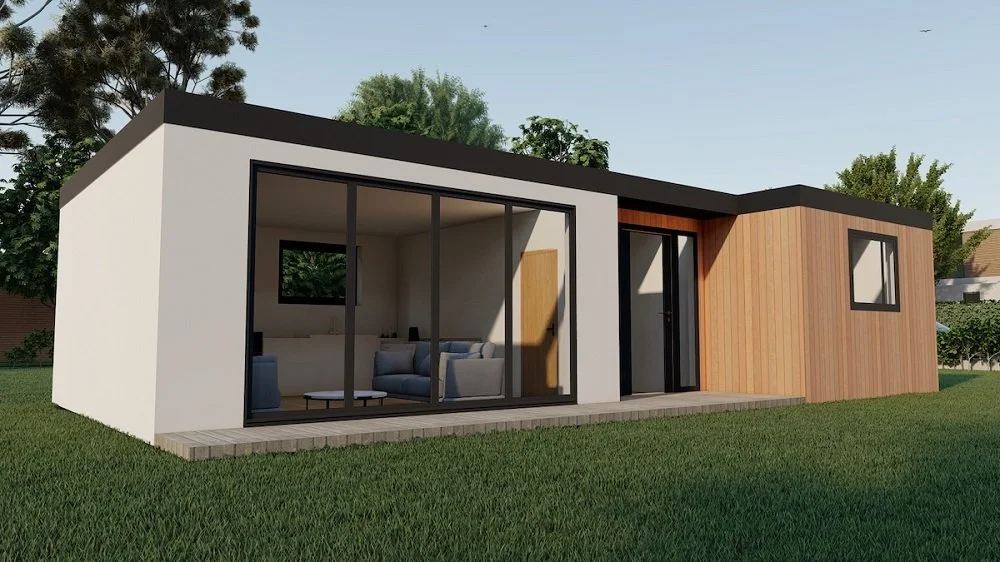Eco-Friendly Home Improvements: The Role of Hybrid Heat Pumps in Sustainable Heating
/As the movement towards eco-friendly living gains momentum in the UK, homeowners are increasingly looking for ways to reduce their carbon footprint and embrace more sustainable practices. One area of focus is home heating, traditionally reliant on fossil fuels like natural gas, which contributes significantly to greenhouse gas emissions. With heating accounting for roughly 20% of the UK’s total carbon emissions, reducing the environmental impact of heating systems has become a top priority. For homeowners, finding an eco-friendly heating solution also offers the dual benefit of potential cost savings on energy bills, especially in light of fluctuating fuel prices and government incentives for low-carbon technologies.
The UK government has set ambitious targets to achieve net-zero carbon emissions by 2050, aiming to meet this goal through a combination of regulatory changes, financial incentives, and public awareness campaigns. Among the range of options for sustainable heating, the hybrid heat pump is among the most promising options, as it reduces environmental impact and offers a practical and efficient alternative for heating British homes. By leveraging a hybrid system, households can minimize reliance on fossil fuels while still maintaining comfort, which makes the switch to greener heating more accessible and appealing for a wide range of homes.
What Is a Hybrid Heat Pump?
A hybrid heat pump is an innovative heating system that combines two technologies: a conventional boiler (typically gas or oil) and an electric heat pump. The electric heat pump, which draws heat from the air, ground, or water, is the primary heat source. However, during colder periods when the heat pump might struggle to maintain efficiency, the boiler automatically steps in to provide additional warmth. This combination ensures that homes are heated efficiently year-round, minimizing energy consumption and reducing reliance on fossil fuels.
Hybrid heat pumps are particularly well-suited to the UK’s variable climate, offering an eco-friendly solution that adapts to different weather conditions. During milder weather, the heat pump efficiently heats the home by harnessing renewable energy from the environment. This significantly reduces the need for gas or oil, leading to lower carbon emissions. When the heat pump’s efficiency decreases, the system switches to the boiler in colder weather, ensuring that the home remains warm and comfortable without relying solely on high-emission heating methods.
This flexibility makes hybrid heat pumps a key component of eco-friendly home improvements, as they allow homeowners to significantly reduce their environmental impact without compromising on comfort or reliability.
The Environmental Benefits of Hybrid Heat Pumps
1. Reduction in Carbon Emissions
One of the primary benefits of hybrid heat pumps is their remarkable ability to lower carbon emissions. By relying predominantly on the heat pump—which draws energy from renewable sources like air, ground, or water—these systems minimize the consumption of fossil fuels traditionally needed for heating. In hybrid systems, the boiler only kicks in when temperatures drop to levels where the heat pump becomes less efficient, which means a significant reduction in natural gas use over the course of a year.
This shift directly impacts household carbon footprints, as each home can save up to several tons of CO₂ emissions annually compared to a conventional gas-only boiler system. As the UK’s electricity grid continues to transition towards renewable energy sources, the environmental benefits of hybrid heat pumps are expected to grow even more, supporting national targets to reduce carbon emissions in line with the Paris Agreement.
2. Energy Efficiency
Hybrid heat pumps are engineered to maximize energy efficiency by switching between the heat pump and gas boiler based on real-time outdoor temperature data. This dual functionality means that during milder weather, the system primarily uses the heat pump, which operates at a much higher efficiency rate than traditional boilers. In fact, heat pumps can transfer three to four times more heat energy than the electricity they consume, making them far more efficient for moderate temperatures. When temperatures fall, the system can then seamlessly switch to the gas boiler, ensuring continued comfort without unnecessary energy waste.
This intelligent energy management not only reduces overall energy consumption but also helps households save on heating costs. For homeowners, this translates into both immediate and long-term financial savings, making it an accessible way to engage in eco-friendly living. Additionally, the reduction in energy demand during peak times helps stabilize the grid, a crucial factor as more homes and businesses shift towards electricity-based solutions for heating.
3. Sustainable Home Improvements
Investing in a hybrid heat pump is more than just a heating upgrade; it’s a transformative step toward a sustainable home. Unlike conventional home improvements that may only enhance aesthetics or provide short-term efficiency gains, a hybrid heat pump offers a lasting positive impact on the environment. It’s a forward-looking improvement that aligns with eco-conscious goals and reduces dependency on non-renewable energy sources. By reducing household reliance on gas, it actively contributes to a reduced demand for fossil fuels, helping to shift the housing sector towards a greener, lower-impact future.
This is particularly relevant for homeowners looking to increase property value, as energy-efficient systems like hybrid heat pumps are becoming more appealing to eco-minded buyers. A hybrid system also complements other eco-friendly investments, such as solar panels or improved insulation, creating a holistic approach to sustainable living that helps homeowners align with both their personal and national environmental goals.
Hybrid Heat Pumps: A Practical Solution for UK Homes
The UK’s housing stock is diverse, with many older properties that are less energy-efficient and more difficult to heat. For these homes, switching to fully renewable heating systems like a ground-source or air-source heat pump can be challenging. This is where hybrid heat pumps come in, offering a more practical solution that blends traditional and modern technologies.
Hybrid heat pumps are particularly beneficial for homes that are not yet fully insulated or where installing a full heat pump system might not be feasible. They provide a way to gradually transition to more sustainable heating, allowing homeowners to improve their home’s energy efficiency while retaining the reliability of a conventional boiler.
While the initial cost of installing a hybrid heat pump may be higher than that of a traditional boiler, the long-term benefits are considerable. Not only do hybrid heat pumps lower energy bills, but they also increase the overall sustainability of your home. In addition, the UK government offers various incentives and grants, such as the Boiler Upgrade Scheme, to help offset the initial investment, making it easier for homeowners to make eco-friendly home improvements.
However, it’s important to consider that not every home may be suitable for a hybrid heat pump. The system's effectiveness depends on factors such as the home’s insulation, local climate, and existing heating infrastructure. Therefore, conducting a thorough assessment is advisable to determine the best heating solution for your home.
Conclusion
Hybrid heat pumps are a crucial component of eco-friendly home improvements, offering an effective, sustainable heating solution that aligns closely with the UK’s ambitious environmental goals. By integrating both a renewable energy-driven heat pump and a traditional boiler, these systems offer the best of both worlds—reduced fossil fuel consumption and a reliable source of warmth even in the coldest months. This not only helps homeowners decrease their carbon footprint but also contributes meaningfully to the nation’s drive for net-zero emissions by 2050.
For homeowners, the benefits of a hybrid heat pump extend beyond sustainability. The increased energy efficiency translates to lower energy bills, making eco-friendly living more accessible and financially rewarding. With the flexibility to switch between energy sources, hybrid systems also provide added peace of mind, ensuring comfort and consistency no matter the weather. This adaptability makes hybrid heat pumps a practical choice for those seeking to make a lasting positive impact on the environment without sacrificing convenience.
like this? Please pin!
If you’re considering ways to make your home more eco-friendly, a hybrid heat pump is an investment worth exploring. It’s a future-focused solution that complements other sustainable home improvements, such as solar panels, energy-efficient windows, and enhanced insulation, creating a comprehensive approach to green living. As the demand for sustainable heating options grows, adopting hybrid heat pump technology not only supports your personal sustainability goals but also contributes to a healthier planet for future generations. By choosing a hybrid heat pump, you’re not only embracing energy efficiency—you’re taking a proactive step towards a more sustainable future.
About the Author:
Alejandro Staton Varela has delved into topics such as the strategies for achieving carbon neutrality within the EU in the future. His passion for renewable energy emerged during his student days, especially focusing on energy policy.
Please share your comments on this article! All comments containing links will be removed.










































Many people recognize that our society has reached a point of environmental urgency. Without taking measures now, the irreversible effects of climate change could prove disastrous for generations to come. Therefore, citizens and businesses alike need to find ways they can make sustainable adjustments, whether that’s turning to green energy as a whole or finding smaller ways to make a difference